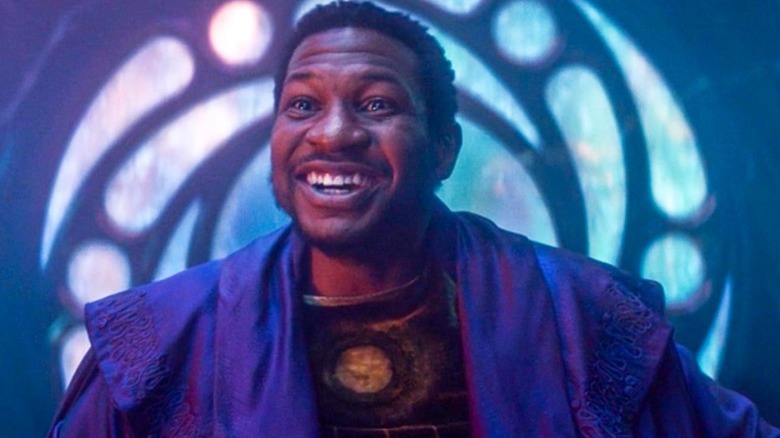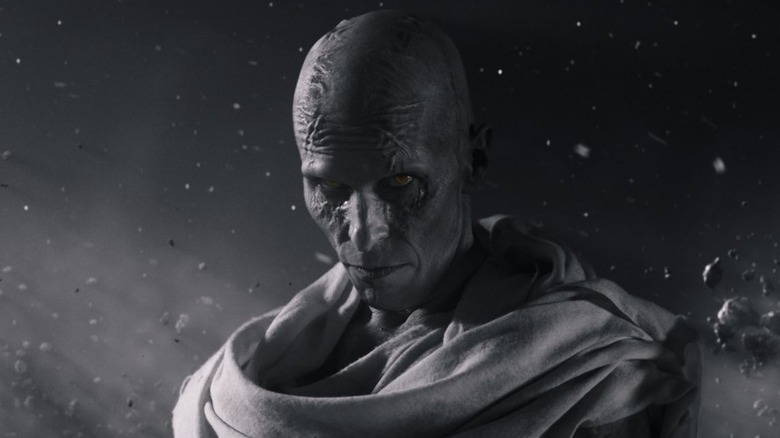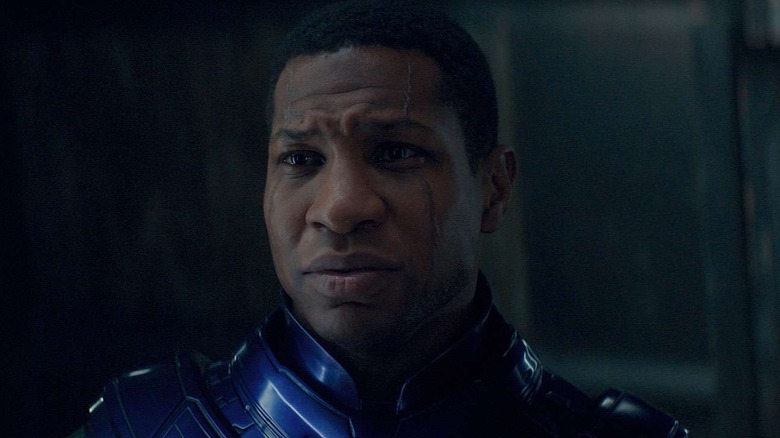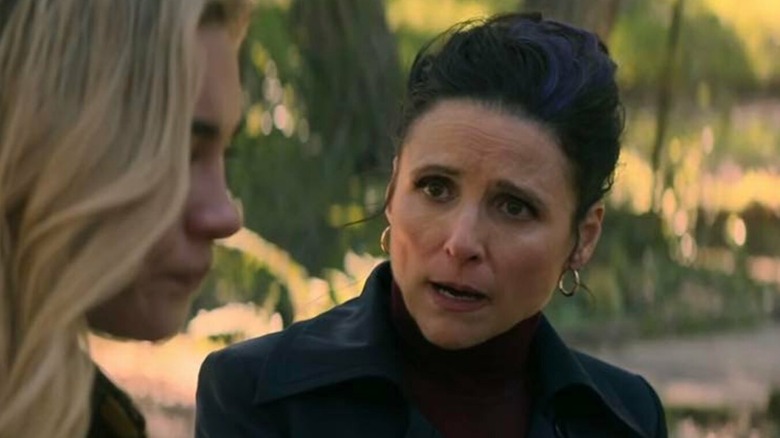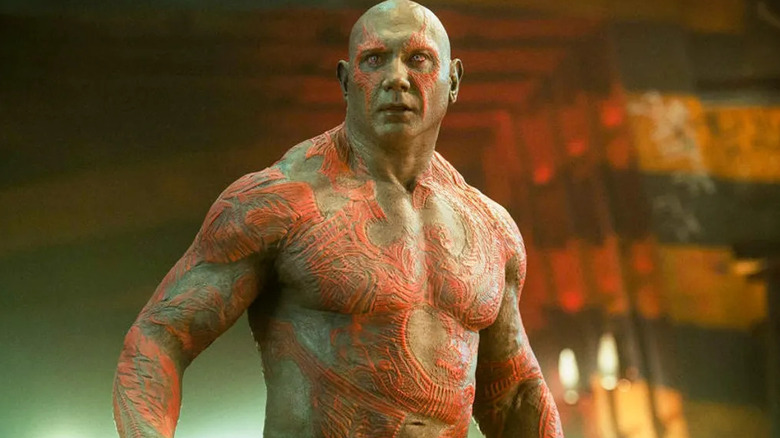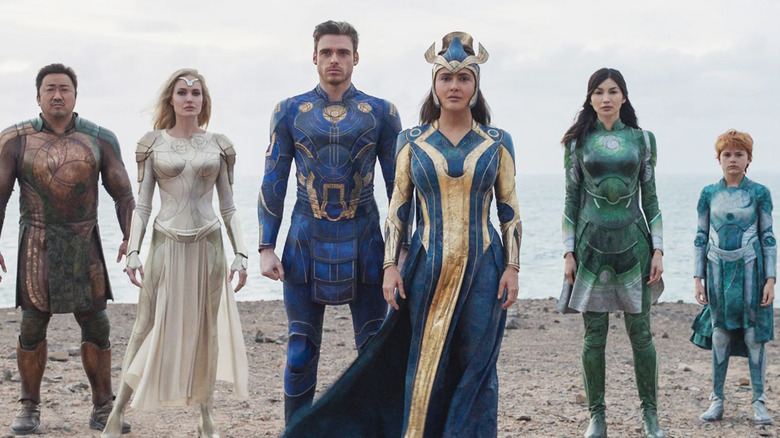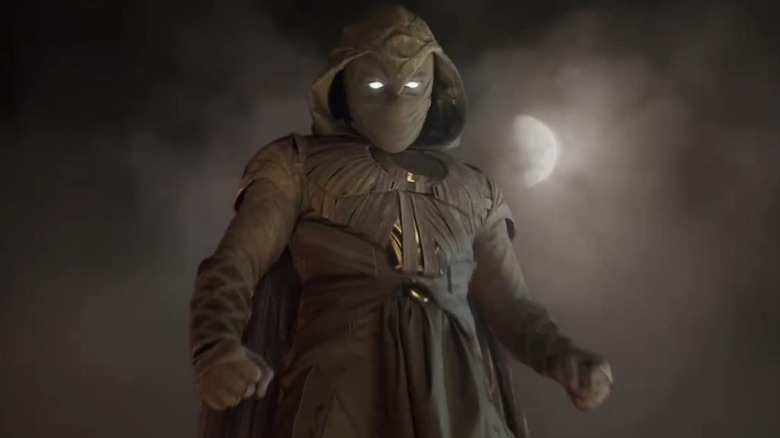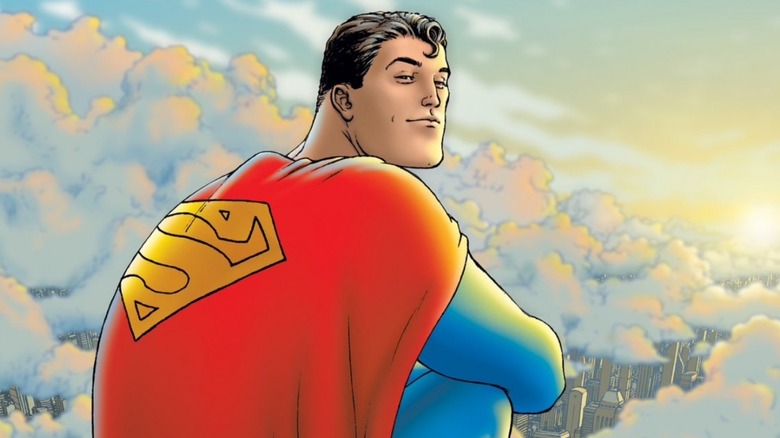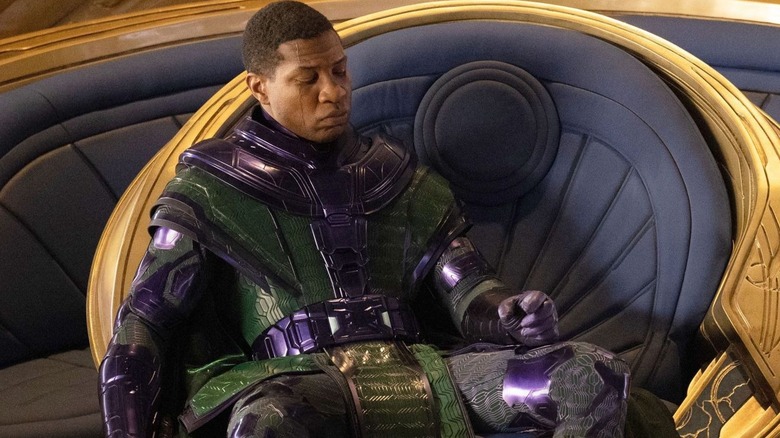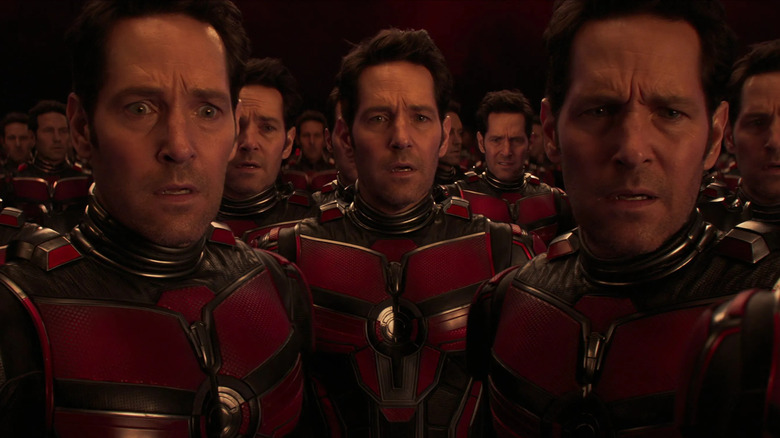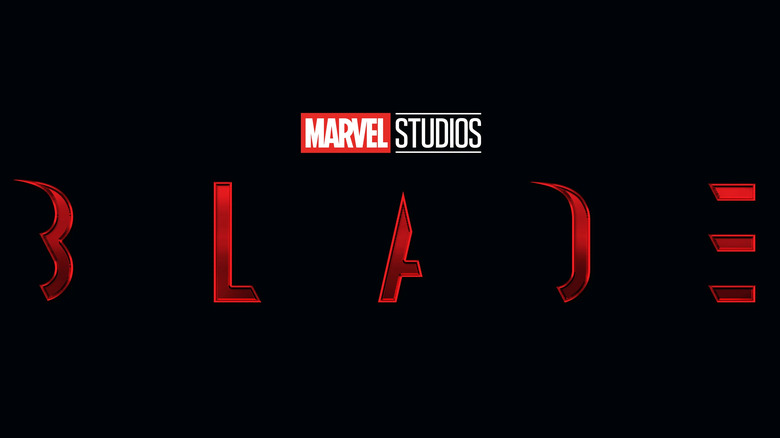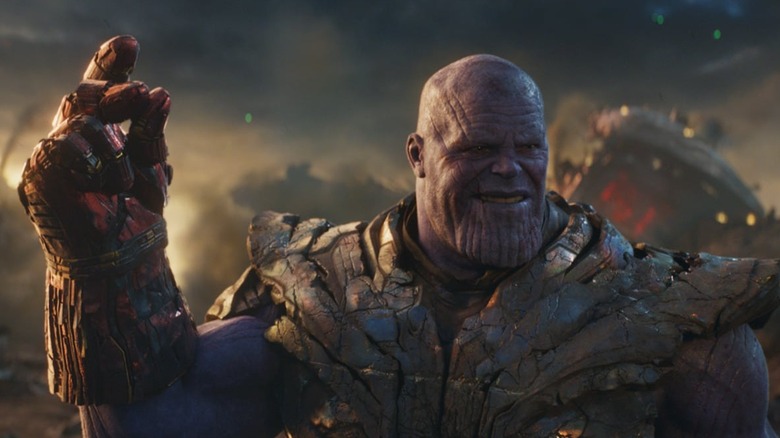11 Reasons Why Disney Should Start Re-Thinking Its Marvel Strategy
A dominant force in film since the late '00s, the MCU has achieved such highs by crafting the template for cinematic universes, introducing beloved characters, the best in special effects and daring storylines that haven't been afraid to kill off a hero or two.
Prior to the MCU, comic book films were typically seen as risky, either soaring at the box office (1978's "Superman," 1989's "Batman"), too low budget to accurately portray the source material (1989's "Punisher," 1997's "Spawn"), too hokey to be taken seriously (the Schumacher "Batman" films) or simply dead on arrival duds (1995's "Judge Dredd," 1986's "Howard the Duck").
Built on the back of CGI's coming-of-age and early Marvel-adjacent hits like Sam Raimi's "Spider-Man" and Bryan Singer's "X-Men" films, the MCU significantly upped the ante and pointed the way forward. The Infinity Saga brought audiences on a decade-long journey that saw the likes of Iron Man, Captain America, and more fight against iconic Marvel villains. Audiences were hooked, and in the process obscure characters like the Guardians of the Galaxy became unexpected sensations. The MCU reached record-breaking high at the box-office, and has even occasionally received some love from the Oscars.
But with the launch of Phase 4 and its growth into Phase 5, the MCU has hit a snag with its next era of storytelling, dubbed "The Multiverse Saga." The MCU has steadily introduced a new generation of heroes and new interconnected storylines, many of them the progeny or padawans of the old guard, and has sometimes struggled to find its footing.
The lukewarm box-office performance of "Ant-Man and the Wasp: Quantumania" and "The Eternals," along with mixed critical responses for Disney+ series like "Hawkeye" and "She-Hulk," could be signaling the MCU is in trouble. Below, several reasons why Disney and Marvel Studios might want to change their strategy going forward.
Villain potential being squandered
Since its inception, one consistent problem with the MCU has been the lack of exceptionality in its villains. Often, Marvel's greatest heroes face off against little more than evil clones of themselves, villains whose personal arcs aren't nearly as rich and whose parallels aren't nearly as compelling as the filmmakers seem to think. Whiplash, Kaecilius, Yellowjacket, Iron Monger — all underwhelming. Then there were the completely forgettable (Malekith, Ghost) and the annoyingly non-incarnate (Dormammu).
Thankfully, Phase 3 brought with it memorable, complicated villains like Vulture and Killmonger, as well as the emergence of Thanos, who broke the usual standard for villains in the MCU through more compelling motivations, performances, and writing. So, it seemed like the MCU had learned its lesson with its villains. With Phases 4 and 5, however, came a different problem — squandering the potential of too many good villains.
There have been some big villains introduced, but not many have lived up to their potential. Beloved Marvel villains like M.O.D.O.K, Gorr the God Butcher, and the Mandarin felt half-baked or even neutered, killed off before they could really be something special. The "Black Widow" take on Taskmaster barely got a chance to shine as a villain; Namor and Agatha's time in the spotlight was short-lived.
While there are promises that some will return, will they truly be meatier? In the comics, Marvel's heroes often face iconic villains time and again. So, the MCU killing off villains, or relegating them to barely-threatening, second-banana status is potentially squandering the impact of one fan favorite villain after another.
Playing the Multiverse too safely
Although Phase 4/5 has been ostensibly focused on exploring the multiverse, it has often done more talking than exploring.
The multiverse has often felt like a big letdown, outside a couple instances; at times, it's been frustrating to hear people talking about the multiverse, rather than setting foot in it. The first appearance of Kang could've been much more special if fans had seen his dominance firsthand in other universes, killing Avengers, rather than him nonchalantly boasting about it. Even when Doctor Strange took his journey through the multiverse, it felt heavily restricted; he encountered a handful of Strange variants and stepped into a couple of worlds.
While the Illuminati scenes featured fun cameos and variants, rarely has the MCU embraced such ambition. For a template, they need not look far; both "Spider-Man: No Way Home" and "Into the Spider-Verse" have done a better job of tapping into the proper tone. Think about the way "No Way Home" captured peak nostalgia by mixing villains and old Spideys; think about when Loki met variants of himself.
The MCU has too often played it safe with the multiverse in Phases 4 and 5; if it's trying to save all the coolest cameos and mind-blowing multiverse madness for Phase 6 "Avengers" flicks, by then fans may no longer be paying attention.
Too many ongoing plot threads
In addition to interacting with the multiverse, the MCU has many characters interacting with each other — in barely-recalled storylines that are at best still operating with the jury out, at worst hollow fan service.
As the films entered Phase 5, Valentina Allegra de Fontaine has been gathering up heroes and villains for a Thunderbolts team, Spider-Man and Sam Wilson (the new Captain America) are trying to figure out their evolving roles as heroes, and Thor, Hulk, and Hawkeye have young kids or successors to mentor. The Eternals seemingly complicated everything, but few acknowledge their supremely powerful existence. There are tons of new characters (Clea, Eros, White Vision, Hercules, Black Knight) who you have to wonder whether fans will even care about if and when they ever get more than a scene, then there's all the folks introduced in various Disney+ shows that have yet to pierce the awareness of your average moviegoer: Scarlet Scarab, the Power Broker, Echo, Kamran.
There's so much going on in the MCU, in fact, that lingering details have caused plot holes and confusion for fans.
It's pretty wild how no one has acknowledged that the Celestial Tiamut is just chilling in the ocean, or that thousands of people saw Arishem in the sky when he came for the Eternals. Plot threads surrounding Shang-Chi looking for the origins of his rings, Doctor Strange working with Clea in the Dark Dimension, and whatever Moon Knight is up to have made the MCU's narrative overcrowded — and far-fetched in that all of these heroes seem to be siloed and unaware of each other's (often world-threatening) struggles.
Got a headache yet? Just wait, because the field is about to get a lot more crowded with Blade, the Fantastic Four, the X-Men, Deadpool and all their peripheral characters about to force themselves into the room.
Actor limitations
With characters appearing in multiple MCU films, the actors who play them can find their time severely restricted — requiring a significant commitment and often, the sacrifice of non-MCU projects they would otherwise want to film. It's no surprise that some actors have begun to openly discuss how frustrating and exhausting the experience can be – and perhaps, a sign that some big names might go the way of Emily Blunt and essentially say thanks, but no thanks.
In a 2023 interview with GQ, the always-outspoken Dave Bautista talked about what it was like to film "Guardians of the Galaxy Vol. 3" as his final appearance as Drax. "It wasn't all pleasant," explained Bautista. "It was hard playing that role. The makeup process was beating me down."
"I just doesn't know if I want Drax to be my legacy," he added. "It's a silly performance, and I want to do more dramatic stuff."
In a 2022 New York Times interview, Elizabeth Olsen mentioned that playing Wanda has rendered her unable to take desired roles, including one in the endearing Colin Farrell quirkfest "The Lobster."
"I started to feel frustrated," she explained. "I had this job security but I was losing these pieces that I felt were more part of my being. And the further I got away from that, the less I became considered for it."
Perhaps an MCU role isn't as glamorous as it once was, and Marvel Studios needs to figure out a way to give its stable of stars enough rope to pursue roles that don't involve wearing spandex and standing in front of green screens. If not, it could become harder to attract A-list talent.
Too many characters
After pivotal characters like Iron Man and Black Widow died in "Avengers: Endgame," and Steve Rogers ended his run as Captain America, the MCU has seemingly attempted to fill the void by throwing dozens of characters at the wall and seeing who sticks.
In the 3 years following "Endgame," the MCU introduced nearly two dozen new heroes; factor in secondary characters and further roster expansion as things get deeper into Phases 5 and 6, and it's simply overwhelming. This is particularly true of young heroes, who have been introduced at such a dizzying clip that there has to be a Young Avengers team forming somewhere down the line; but while comic book fans might be rejoicing at names like Kate Bishop, Cassie Lang and Yelena Belova, to fuel franchises such characters will have to become more than simply the "new" Hawkeye, Ant-Man and Black Widow.
The MCU also has an overload of factions that just keep coming. From the Ten Rings to Namor's Atlantis, the Tracksuit Mafia to the Ennead, the Celestials to Intelligencia, the Skrulls to Damage Control, there are more teams here than in the NBA. In many cases, lack of storyline reinforcement has led to atrophy; characters like Shang-Chi, the Eternals, and Moon Knight were introduced in adventures that seemed to be of world-changing importance; in the wake of those releases, nobody in the MCU acknowledged them across multiple installments.
TV shows feel disconnected
With Phase 4, the MCU delved into the creation of TV shows for Disney+, predominantly focused on supporting characters and more obscure Marvel heroes. The idea was strong out of the gate, with series like "WandaVision," "The Falcon and the Winter Soldier," and "Loki" delving into some lingering story arcs from the aftermath of "Endgame." But once the shows became more focused on introducing new characters, they struggled to feel as connected to the wider MCU.
"Moon Knight" desperately needed some type of cameo or big connection to the films, simply so it could feel relevant. Instead, in its aftermath, fans could have skipped it and not missed a beat. "Ms. Marvel" could have received a significant boost from Kamala Khan interacting with other young heroes, or at least meeting her idol Captain Marvel. Instead, there was simply a quick, post-credits appearance by Carol Danvers, without the two characters even interacting.
"She-Hulk" probably featured the biggest connections to the wider MCU, thanks to the appearances of notable characters like Abomination and Wong, yet it was still too distanced. The series' distinct tone and style made it feel more like its own thing, rather than a new chapter in the MCU.
Given what the MCU's upcoming TV lineup looks like, it seems like even more new characters are on the way. Hopefully, the MCU can find a way to course-correct and make its shows more relevant to the wider events happening in the universe.
Not the same old DC
The MCU's dominance, to some degree, can be attributed to how weak the competition has been. DC took their shot at replicating the MCU with the so-called "Snyderverse," which frequently felt disjointed and only achieved intermittent success. Universal, meanwhile, made a big noise over their Dark Universe — a cinematic collective based on their classic horror monsters — then abandoned it shortly after Tom Cruise's mummy movie underwhelmed. The only cinematic universe that has come close in terms of consistent success might be Legendary's MonsterVerse, centered on Godzilla and King Kong.
Now, with James Gunn and Peter Safran taking the reigns of DC and putting together an intriguing plan, the MCU might have some legitimate competition on the horizon. Gunn's experience in the MCU, and with comic book movies, gives his DCU a strong backbone of experience that DC has sorely lacked. Plus, the lineup of its first "Gods and Monsters" chapter has some potential hits — such as the "True Detective"-inspired "Lanterns" series and a father/son Batman story in "Batman: The Brave and the Bold." With the news that Gunn is now writing and directing "Superman: Legacy," the MCU needs to get back in fighting shape quickly if it wants to continue wearing the belt.
No clear direction for the multiverse
As a result of the MCU maintaining its position at the periphery of the multiverse entering Phase 5, there has been no clear direction for where its all headed. Sure, Kang the Conqueror is the MCU's next big baddie, but his first appearance left a lot to be desired. He didn't make much of an impression outside of being a physically dominating brute, of which the MCU has plenty. The post-credits scene focusing on the Council of Kangs didn't impress much, since it failed to establish them as a larger threat. Rather, it just felt like a typical post-credits scene.
With many characters in the multiverse still not interacting, there's not much to make the Multiverse Saga live up to its name. The MCU needs to make the multiverse feel like something bigger than just another plot thread, because there's already a lot of other plot threads threatening to overshadow it. It feels like the plots of "Secret Invasion" and "The Thunderbolts" will take more of the spotlight. The MCU's street-level talent is building into something bigger than the multiverse, and that's a problem. There needs to be more heroes involved with the multiverse storyline, and maybe as more Kang variants are spotted there will be a clearer direction. For now, however, the MCU's multiverse is a mess.
Lukewarm reception
Once upon a time, it was rare to see the MCU get poor reviews. But between Phases 4 and 5, the MCU has been on a lukewarm streak — and the results seem to be having a trickle down effect on box-office.
"Thor: Love and Thunder" had some moments that upset fans, and even though director Taika Waititi brought the same kind of humor fans and critics made it clear that this was no "Ragnarok."
"Ant Man and the Wasp: Quantumania" and "The Eternals" stumbled, receiving divisive reactions; prior to its release, "The Eternals" was marketed as a major new tentpole of the MCU — after middling reviews and poor box-office, it's unlikely a second "Eternals" movie will see the light of day. As for "Quantumania," its introduction of Kang fell flat; the result was a devastating near-70% box-office drop during its second week.
Big production delays
For years, the MCU consistently, confidently put out its release timeline and hit its dates. While the COVID-19 pandemic certainly threw everything into disarray in Hollywood (with "Black Widow" among its most high-profile punching bags), Marvel still seems to be scrambling at times.
Multiple shows were expected to hit Disney+ in 2023, then reports seemingly indicated that only two ("Secret Invasion" and Season 2 of "Loki") might actually release. "Secret Invasion" — the next show on deck — has seemed to be in a holding pattern while Marvel Studios figures out its plans.
"The Marvels" was hit with a delay, pushed back from its original July release to November 10th. The "Blade" reboot lost its original director, reportedly got a rewrite, then was punted from November of 2023 but to September 2024. This set off a cascading effect, as the third "Deadpool" movie, the "Fantastic Four" film, "Avengers: Secret Wars" and an untitled film were all pushed back. A second untitled film (originally slated for May 1, 2026) was removed from the schedule entirely.
The Infinity Saga's expectations
Perhaps the biggest problem with the Multiverse Saga thus far, however, is its most obvious one: it simply isn't living up to the Infinity Saga.
There's little denying that the storytelling and build-up of the Infinity Saga was masterful; "Avengers: Infinity War" and "Endgame" were full-on cinematic events, not mere sequels. Add in the beloved nature of legacy characters like Iron Man, Captain America, and Black Widow — portrayed to iconic stature by A-list heavyweights like Robert Downey, Jr., Chris Evans and Scarlett Johansson — and it's hard to compete.
The MCU found itself at the end of an era after "Endgame." Now, much of what fans are seeing feels like an aged athlete, trying to recapture the magic. All these storylines, all these new characters are being tossed at fans, but how much is really sticking?
Kang is being hyped us as a Thanos-level threat, but doesn't have the same stature. Phase 4 served better as an epilogue to "Endgame" than the start of a new saga, another big reason why this era of the MCU feels like it's trying to be something it's not.
The bottom line: The MCU is currently stuck in the shadow of The Infinity Saga, struggling mightily to find its own way. It's time for Marvel Studios to take a step back, re-evaluate what they want to build with the Multiverse Saga, and figure out a way to once again bring audiences to their feet.
